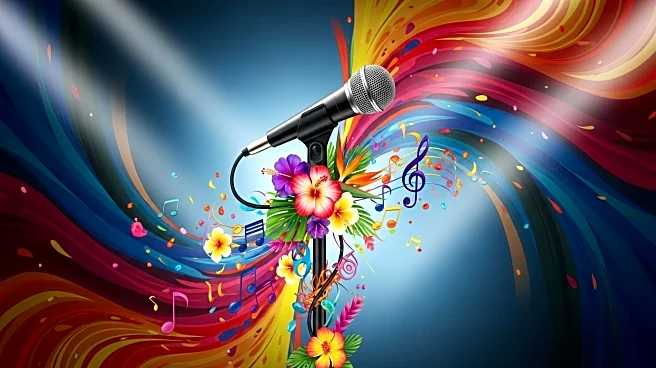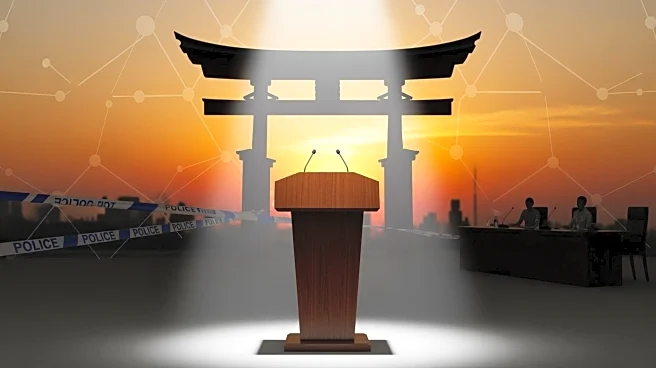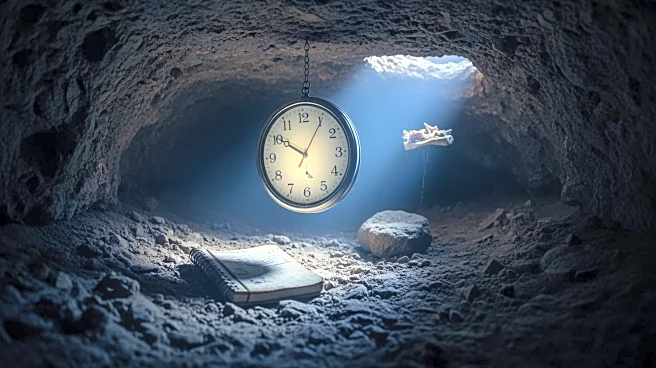What is the story about?
What's Happening?
Bad Bunny, the Puerto Rican reggaeton and hip-hop superstar, has been announced as the headliner for the 2026 Super Bowl halftime show at Levi's Stadium in San Francisco. The announcement was made during the Packers-Cowboys 'Sunday Night Football' game. Bad Bunny, whose real name is Benito Antonio Martínez Ocasio, is recognized as the most-streamed artist globally and has won three Grammy Awards. His selection follows a successful residency in Puerto Rico and comes amid his decision to avoid U.S. performances due to concerns about Immigration and Customs Enforcement (ICE) raids. The Super Bowl performance is expected to be a significant cultural moment, highlighting Latin music on one of the world's largest entertainment stages.
Why It's Important?
Bad Bunny's selection as the Super Bowl halftime performer marks a milestone for Latin music, offering unprecedented exposure to a global audience. The performance is significant not only for its cultural representation but also for its timing, as Bad Bunny has expressed concerns about performing in the U.S. due to ICE raids. This event could influence public perception and policy discussions regarding immigration and cultural diversity in the U.S. Additionally, the performance is likely to boost Bad Bunny's already substantial influence in the music industry, further solidifying his role as a global ambassador for Latin music.
What's Next?
Bad Bunny will continue his world tour, with the Super Bowl performance serving as his sole U.S. appearance. The event is expected to draw significant media attention and could lead to increased discussions about Latin representation in mainstream American entertainment. Stakeholders in the music industry and cultural advocacy groups may use this opportunity to push for greater inclusivity and diversity in major entertainment events.
Beyond the Headlines
The choice of Bad Bunny for the Super Bowl halftime show reflects broader shifts in cultural representation and diversity in American entertainment. It highlights the growing influence of Latin music and artists in the U.S. and globally. This development may encourage other major events to feature diverse performers, potentially leading to long-term changes in how cultural diversity is celebrated in mainstream media.















